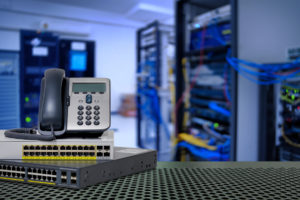
ByOD – Does it fit in your enterprise?
Back in the good old days, the really old days of the 1990s you could rely on the relative standardization of enterprise environments. Your shop was either Microsoft or Apple, depending on how deep the pockets your employer were, and how well he understood that the difference between Capital Expenditures and Operational Expenses. One could rely on the relative newness of consumer computing before the dot com bust — and the can-do-attitude of a Western society that thought itself at the end of history, and entering a New World Order — to ensure that whatever new gadget the head of IT wanted, would be on the budget within the next six months.
Today, after the dot com bubble bust, the 2009 financial crisis and the economical Crises that has resulted in most IT budgets being rationalized; IT managers find themselves trying to hold it together on a bread and butter budget. In the concrete case of Switzerland, this means that the apprentices that were hired during the good times were not replaced, and heads of IT, certified professionals with years of experience, find themselves struggling to keep an evolving et aging infrastructure, from falling apart at the seams, while facing increasing employee expectations.
In the meantime, due to the popularization of smartphones employees have become more and more tech savvy, and have come to expect everything to be as easy as it is in their private life, often not understanding why they can’t to do everything off of their phone. Neither do they understand the effort required to deliver quality IT service in a consistent manner for everyone.
This situation forces heads of IT to make difficult choices between usability and the security of enterprise systems, specially in high-risk Industries like banking, medical devices manufacturing, or the watch making industry, where the protection of the company’s intellectual property, or client’s confidentiality makes such questions important.
A bring your own device policy, lowers material acquisition costs while at the same time providing a more integrated customer experience; however this comes with the risk that an employee will walk out the door with something important, or more realistically share sensitive information with unauthorized persons. Not an easy question to answer, when CIOs will be held directly responsible for any breach of operational security.
The problem is complicated by the heterogeneity of today’s computing environment. Just ask everyone at the next meeting to pull out their phones. You are dealing with the challenge of providing a consistent service to Android, iOS, OS X, Windows OSs installed on devices from a dozen different manufacturers, all in various states of decrepitude. If you are unlucky you might even be responsible for consistently feeding data from IoT devices.
Most companies deal with this situation in a straightforward manner, by giving their employees a gift of a modern phone as well as a laptop on a buyback plan in order to make for a more homogeneous environment. Having a clear and straightforward onboarding process with proper training, also makes sure that new employees are up-to-date with the latest systems, and can if necessary update their peers.
With all the thoughts behind having a conducive ByOD culture, it is paramount to have the right choice of technology partner, to design an infrastructure that is both open to employee’s needs while at the same time ensuring compliance with industry standards regarding data protection.
Being creative and flexible in the process also avoids unnecessary frustrations with the enterprise systems. We at Rational Spelling have been working with organizations through such implementations and are well versed with bringing in the right technologies, tools and systems to ensure you are able to reap the benefits of lower assets costs and high data integrity while using ByOD into your business.
To know how Rational Selling can help you
Visit us www.Rationalselling.com or write us at info@rationalselling.com




